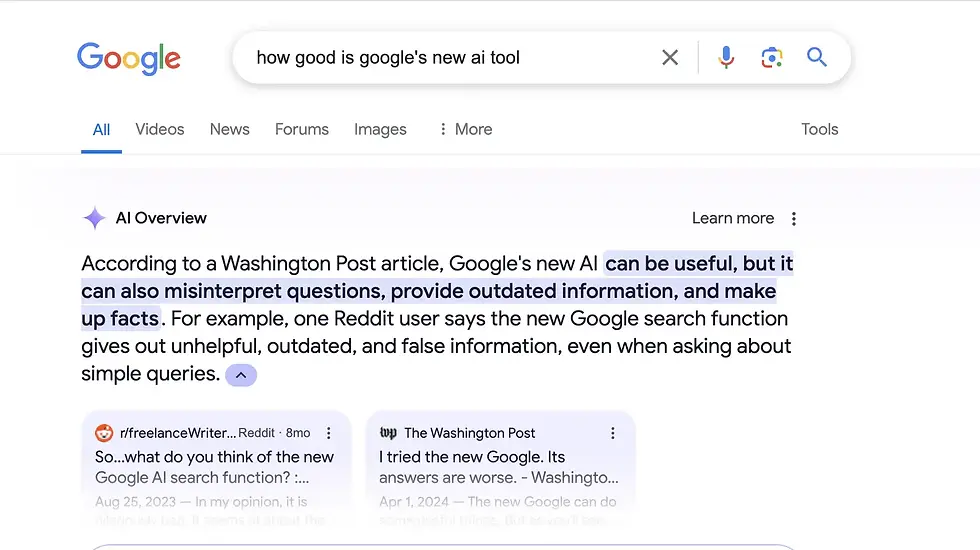SEO + AI: How to Prepare for Future Search Results
- Estudio CKS

- Jun 10, 2025
- 3 min read

For years, when we talked about SEO (Search Engine Optimization), we thought about appearing first on Google. But that's changing. Today, many people no longer search only on Google: they ask artificial intelligence tools like ChatGPT, Gemini (from Google), Copilot (from Microsoft), and others.
These new search engines work differently. They don't display a list of links, but rather generate direct answers. So, how can you get your website to appear in those answers?

Why is it important?
According to a Statista report (2024):
More than 53% of internet users in Latin America have already tried a conversational AI tool.
47% of marketing professionals believe that AI-based search engines will partially replace Google in the next 3 years.
ChatGPT receives more than 1.8 billion monthly visits, many of them searching for products, services, or recommendations.
This means that your website must no longer just be optimized for Google… it must also be ready to be “read” by artificial intelligence.
What changed with LLMs (Language Models)?
LLMs (like GPT or Gemini) don't search like Google. They:
Analyze the entire content of your site.
Extract key data, such as schedules, services, prices, reviews, or explanatory text.
Evaluate language clarity: they reward sites that explain what they do well, in a human and easy-to-understand tone.
They don't focus so much on exact keywords, but rather on the overall context and authority of the content.

So… what practices help you appear in these new search engines?
Here are some key tips and an explanation of why it works:
Write clear, useful, and specific texts about your services
LLMs respond better if your site clearly explains what you do
Have an organized site structure (menus, clear sections, titles)
Helps AI better understand your content
Publish frequent content: blogs, news, case studies
Positions you as a reliable and up-to-date source
Add customer reviews and testimonials
AI detects these as trust signals
Use well-written questions and answers (FAQs)
They can be directly ingested by ChatGPT as a source
Have a good online reputation (inbound links, mentions, active networks)
Improve your digital "authority"
And what's next for Google?
Google remains the leading search engine, but it's also increasingly integrating artificial intelligence into its results. Good SEO is still important, but now there's a new layer: being understandable to AI.
What used to be just about positioning your site… now also means helping the machines that answer for you understand you.
Since 2024, Google has begun integrating AI-generated answers using language models (LLMs) directly into search results through a feature called AI Overviews (formerly known as SGE, Search Generative Experience).

This feature appears at the top of the results page and offers AI-generated summaries that combine information from multiple reliable sources into a single block of text, providing the user with a more direct and contextualized answer. AI is especially used in complex, comparative, or conversational searches, allowing for a better understanding of user intent.
Although it is still in a gradual and experimental implementation phase, it represents a significant shift in how search engines present information, prioritizing automatic synthesis over traditional links.

How can Estudio CKS help you?
At Estudio CKS, we optimize websites not only for Google, but also for the new paradigm of conversational SEO. We work with clear structures, effective texts, and content designed to ensure your brand is where people ask their questions: in search engines and in artificial intelligence.
Are you interested in starting to work on your SEO in a modern and up-to-date way?
Write to us, we'll help you take the first step.





